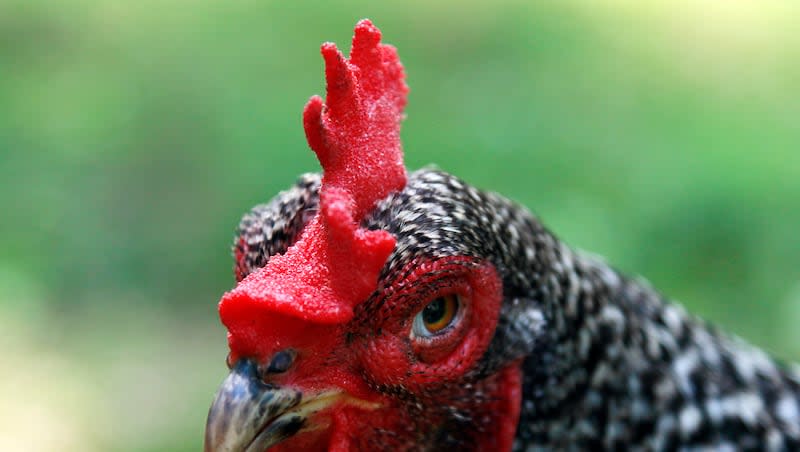CDC investigating salmonella outbreak linked to backyard poultry

The Centers for Disease Control and Prevention is investigating an outbreak of salmonella infections among people who touched or cared for backyard poultry. So far, 33 have been hospitalized of 109 who became ill. No one has died, but the outbreak includes 29 states. And more than 40% of those sickened are children younger than 5.
According to the notice, you can’t tell if backyard poultry have salmonella just by looking at them. They can look healthy and clean and still harbor the germs, which “easily spread to anything in the areas where the poultry live and roam. You can get sick from touching your backyard poultry or anything in their environment and then touching your mouth or food and swallowing salmonella.”
Salmonella symptoms include diarrhea, fever and stomach cramps. The symptoms can start anywhere from six hours to six days after swallowing the bacteria. Most people recover on their own, usually in less than a week. If you can’t keep liquids down or have signs of dehydration, seek help. That’s also true with diarrhea that lasts for three days without improving or blood stool.
But young children, older adults and people with compromised or weak immune systems can become extremely ill and need medical attention and even hospitalization.
The states involved include Alabama, Arizona, Arkansas, California, Colorado, Georgia, Indiana, Illinois, Kansas, Louisiana, Massachusetts, Michigan, Mississippi, Missouri, Montana, Nebraska, New Mexico, North Carolina, Ohio, Oklahoma, Oregon, Pennsylvania, Rhode Island, South Carolina, Tennessee, Texas, Utah, Washington and Wisconsin, according to a CDC map.
Buying and maintaining a flock
People should be careful where they get their chickens and ask questions. The CDC says chicken sellers should get their poultry from hatcheries that reduce the risk of salmonella, including cleaning and sanitizing poultry display areas between shipments of poultry.
The CDC also offers an informational poster that stores can provide and that flock keepers can download on their own to learn how to stay healthy with backyard flocks.
Tips to avoid infection from the bacteria include:
Wash your hands thoroughly and immediately after touching the birds, their eggs or anything in the area where the flocks are.
Watch kids around flocks. They’re more likely to become seriously ill from salmonella.
Don’t kiss or snuggle the birds, or eat and drink around them.
Take care to handle eggs safely.
Call your health care providers if you develop severe symptoms of salmonella.

